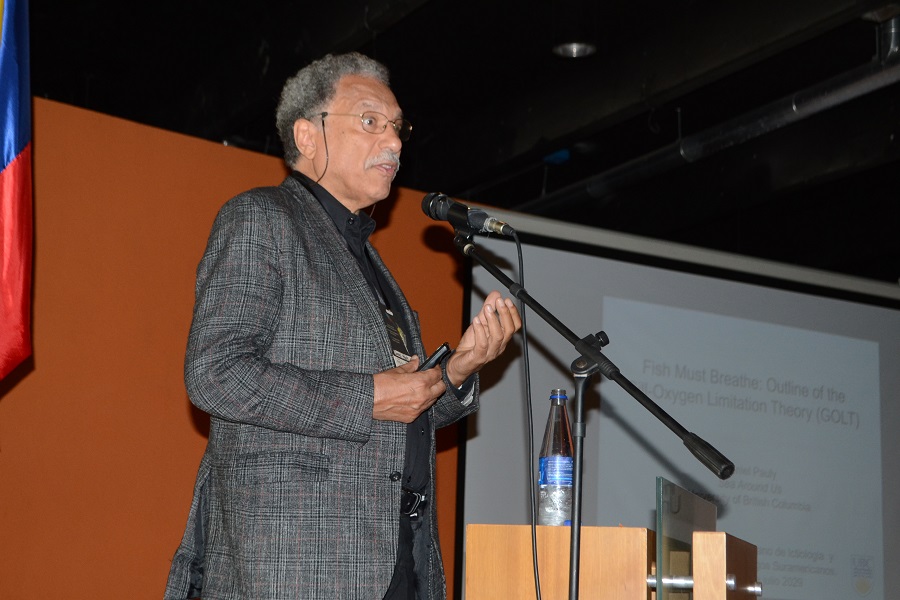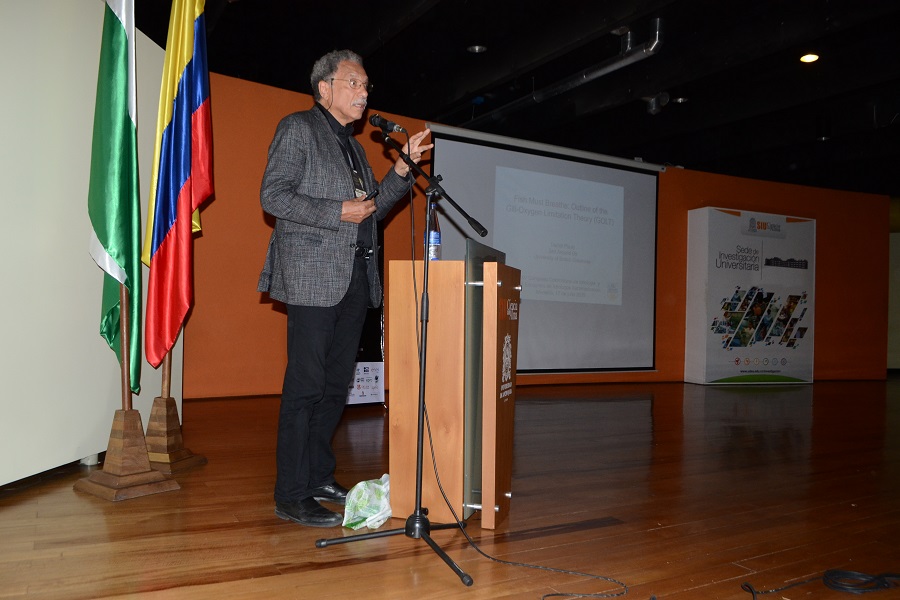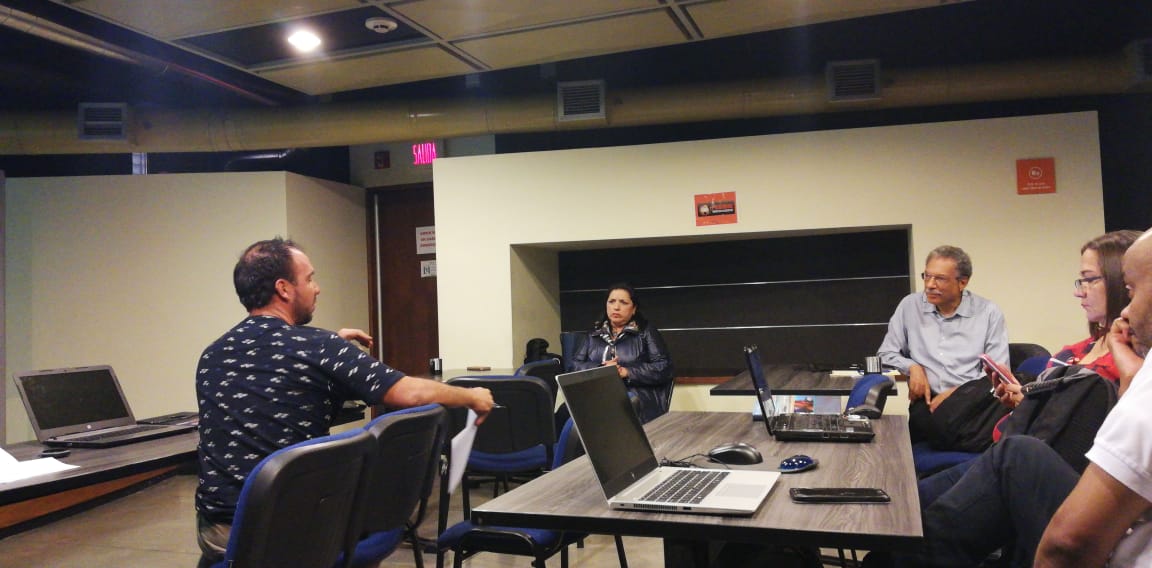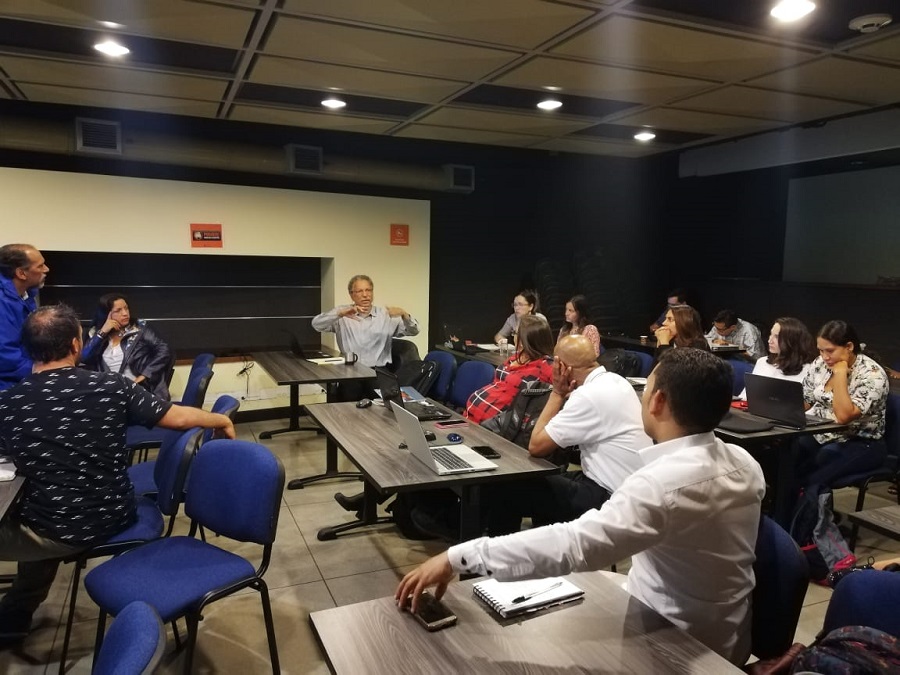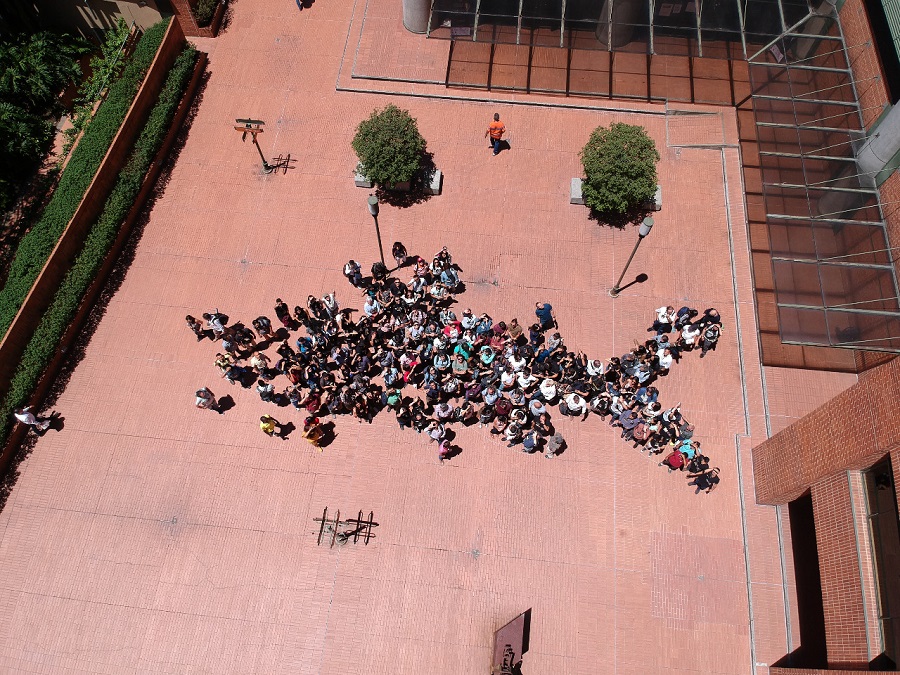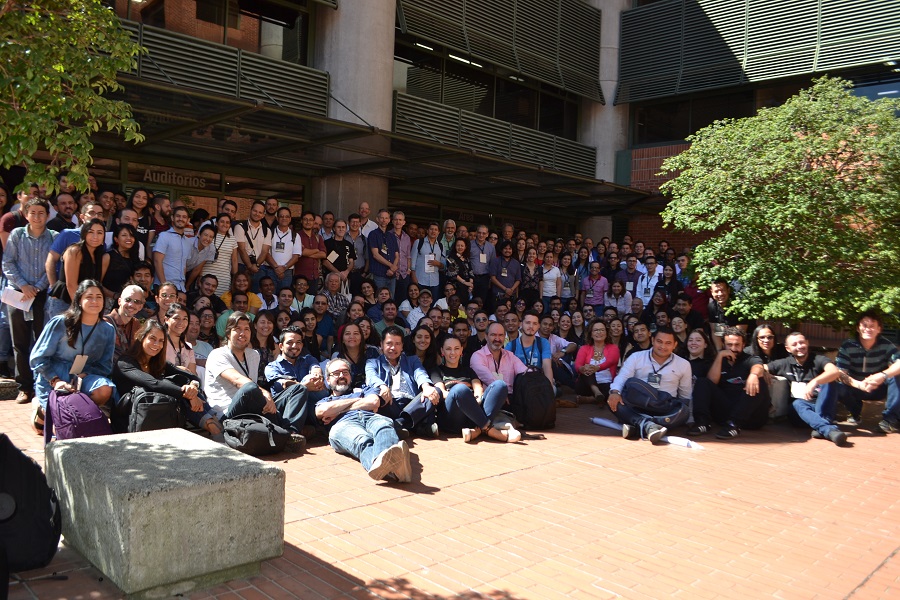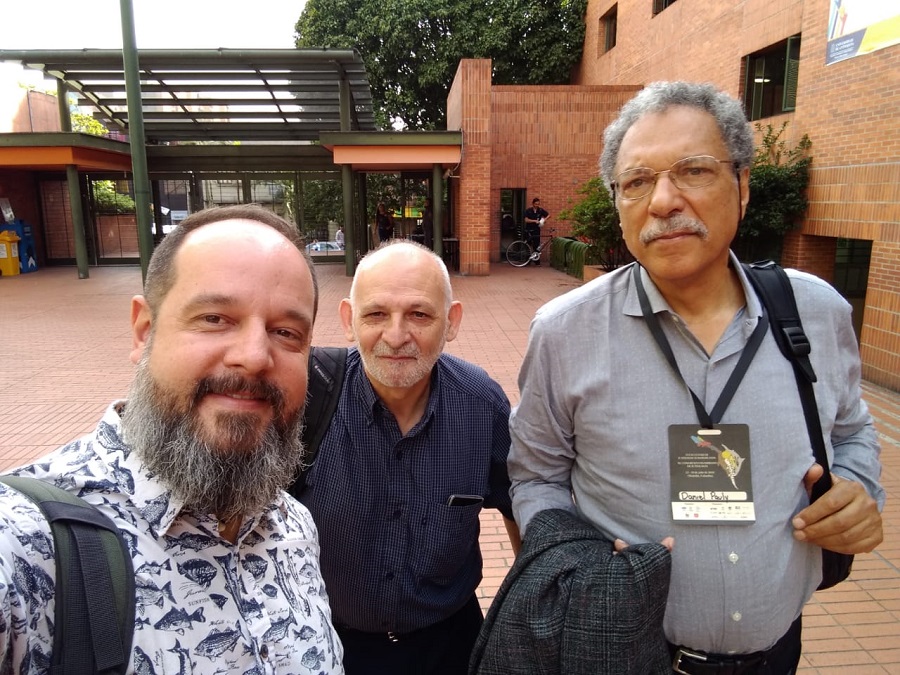In July 2019, the Sea Around Us Principal Investigator, Dr. Daniel Pauly, visited northern Colombia to attend the XV Congress of Colombian Ichthyologists and the VI Meeting of South American Ichthyologists, held at the Research Centre of the Antioquia University in Medellín.
Dr. Pauly was the keynote speaker on the first day of the three-day event. He presented a lecture titled ‘Fish must breathe: outline of the Gill-oxygen Limitation Theory (GOLT).’
In his lecture, the Sea Around Us’ PI delved into the basics of the theory that seeks to explain a variety of life processes in fish and aquatic invertebrates by the fact that that the surface of their gills (and hence their oxygen supply) cannot, as 2-dimensional objects, keep up with the growth of their 3-dimensional bodies, and thus with their oxygen requirements.
Dr. Pauly presented various processes and attributes of tropical and other fish and aquatic invertebrates which had to date no mechanistic explanation. However, they are explained with the GOLT, which is thus offered as a tool to interpret multiple phenomena that, until now, were perceived as unrelated and/or requiring no explanation.
Following Dr. Pauly, Dr. Thierry Oberdorff, Research Director at the Biology of Aquatic Organisms and Ecosystems unit at France’s Institut de Recherche pour le Développement, presented a talk titled ‘A transnational collaborative project for a comprehensive database on Amazonian fish distribution – AmazonFish.’
Dr. Oberdorff explained how AmazonFish is working towards building a high-quality freshwater fish biodiversity database covering the entire Amazon drainage basin, which concentrates the highest freshwater biodiversity on Earth, including 2,400 recognized species of fish, or the equivalent to 15% of all freshwater fishes described worldwide.
Dr. Pauly and Dr. Oberdorff subsequently talked about the possibility of linking FishBase, which is widely used in South America, with AmazonFish.
The next day, Dr. Nathan Lujan, Gerstner Scholar at the Department of Ichthyology of the American Museum of Natural History, offered a lecture on his research on the fundamental patterns and processes in the ecology and evolution of Neotropical fish.
Finally, on the third day of the conference, Dr. Jean Ricardo Simões Vitule, Professor at the Federal University of Pará in Brazil, talked about the influence of invasive species in the dynamics of native species.
Besides the keynote speakers, the Congress gathered over 80 presenters, amongst them biologists, ecologists, fisheries and aquaculture engineers, anthropologists, sociologists, and economists, who talked to other researchers and graduate and undergraduate students hailing from 14 countries about conservation and management of South American fish, which are threatened by overfishing and especially by the construction of dams.


